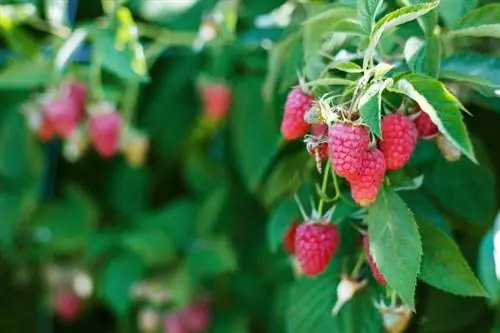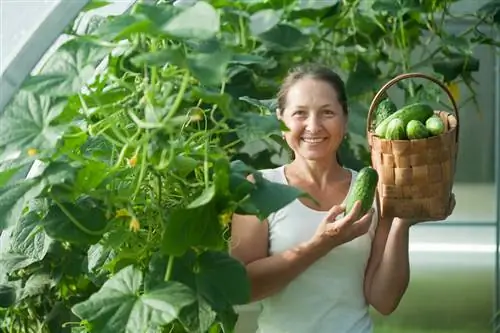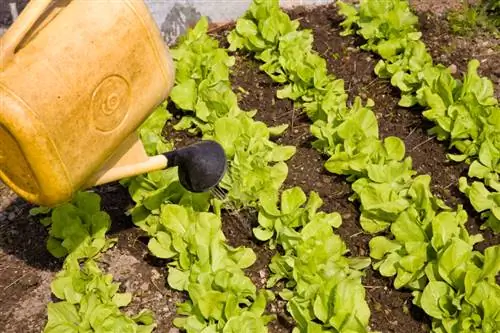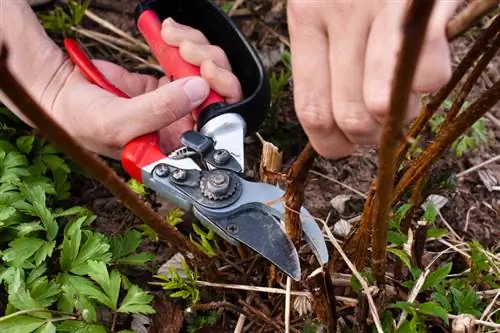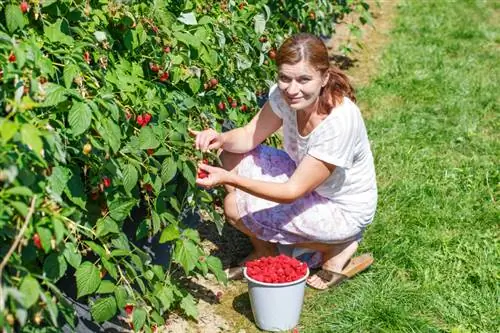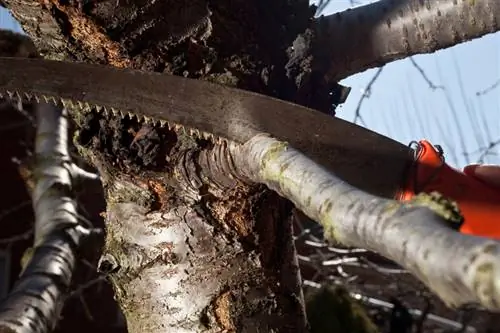- Author admin leonars@hobbygardeners.com.
- Public 2023-12-16 16:46.
- Last modified 2025-01-23 11:19.
Raspberries are very humble plants. They also thrive on soils that are poorer in nutrients. However, you can increase the yield through a favorable location and timely application of fertilizer. How to properly fertilize your raspberries.
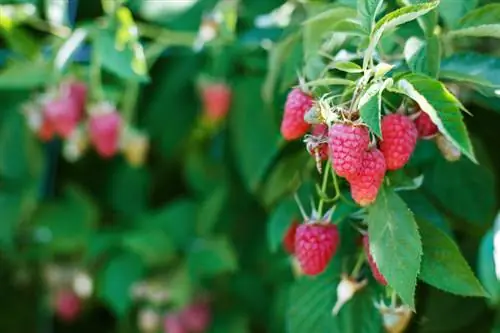
How should you properly fertilize raspberries?
Raspberries require compost, stable soil or peat when planting and fertilization twice during growth with natural fertilizers such as compost, stable manure, peat, horn shavings or nettle manure. Mulching with bark mulch, leaves, grass clippings or peat is an alternative to fertilizing and creates ideal growing conditions.
Fertilizing when planting raspberries
You can ensure a good supply of nutrients as soon as you plant the raspberries in your garden.
Never plant new raspberries in a spot where other berry bushes, such as blackberries, have previously stood. These soils are very depleted and need some time to recover.
Prepare the soil well. Loosen the soil deeply and mix it with ripe compost, rotted stable soil or peat.
Fertilizing during growth
During the growing season, fertilize your raspberries twice.
The first fertilization takes place in spring. This ensures that the bushes receive enough nutrients to produce lots of fruit. After the harvest, a second fertilizer application is made. It is used to strengthen the plants for the coming year.
Avoid fertilizing your summer raspberries just before harvest in July or your fall raspberries in August. Some fertilizers affect the aroma of the fruit and make it watery.
Natural fertilizer for raspberries
The following are suitable as natural fertilizers for raspberries:
- Compost
- stable manure
- Peat
- Horn shavings
- Stinging nettle manure
Raspberries do not tolerate fertilizers containing lime or chloride. It is therefore better to rely on natural nutrient offerings. You can make many of these organic fertilizers yourself.
Mulching instead of fertilizing
Mulching raspberries has several benefits. The soil remains weed-free. This is to protect the summer raspberries from cane disease.
The mulch layer is a natural protection that prevents the soil from drying out. Raspberries love an evenly moist environment without waterlogging. With a layer of mulch you create an ideal growing climate.
The mulching material rots over time and releases many nutrients. They penetrate the soil and act as a natural fertilizer.
Suitable materials for mulching
- Bark mulch
- Leaves
- Lawn cutting
- Peat
If you use lawn clippings, make sure that the grass is well chopped. The grasses must not have developed any inflorescences yet. Otherwise, there is a risk of a grass cover forming under your raspberries.
Only lay out he althy foliage as mulch. Leaves with pests or fungal diseases should be discarded entirely and not used in the garden.
Fertilize raspberries in the pot
You have to fertilize raspberries in pots more often because the soil in them quickly leaches out. You should replace all of the soil every two years so that the plants receive enough nutrients.
Tips & Tricks
Since raspberries are very undemanding plants, a special raspberry fertilizer is not necessary. Raspberry fertilizer can only be added if the soil is already very depleted. However, it is often better to choose a new location for the raspberries.

